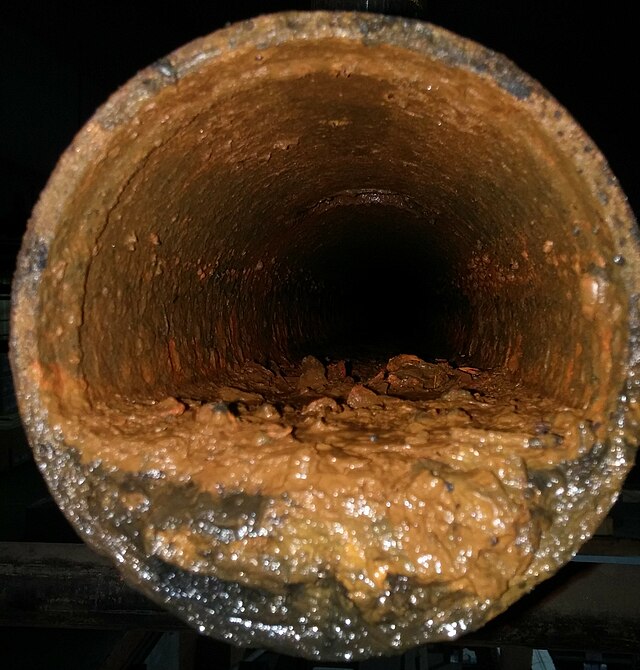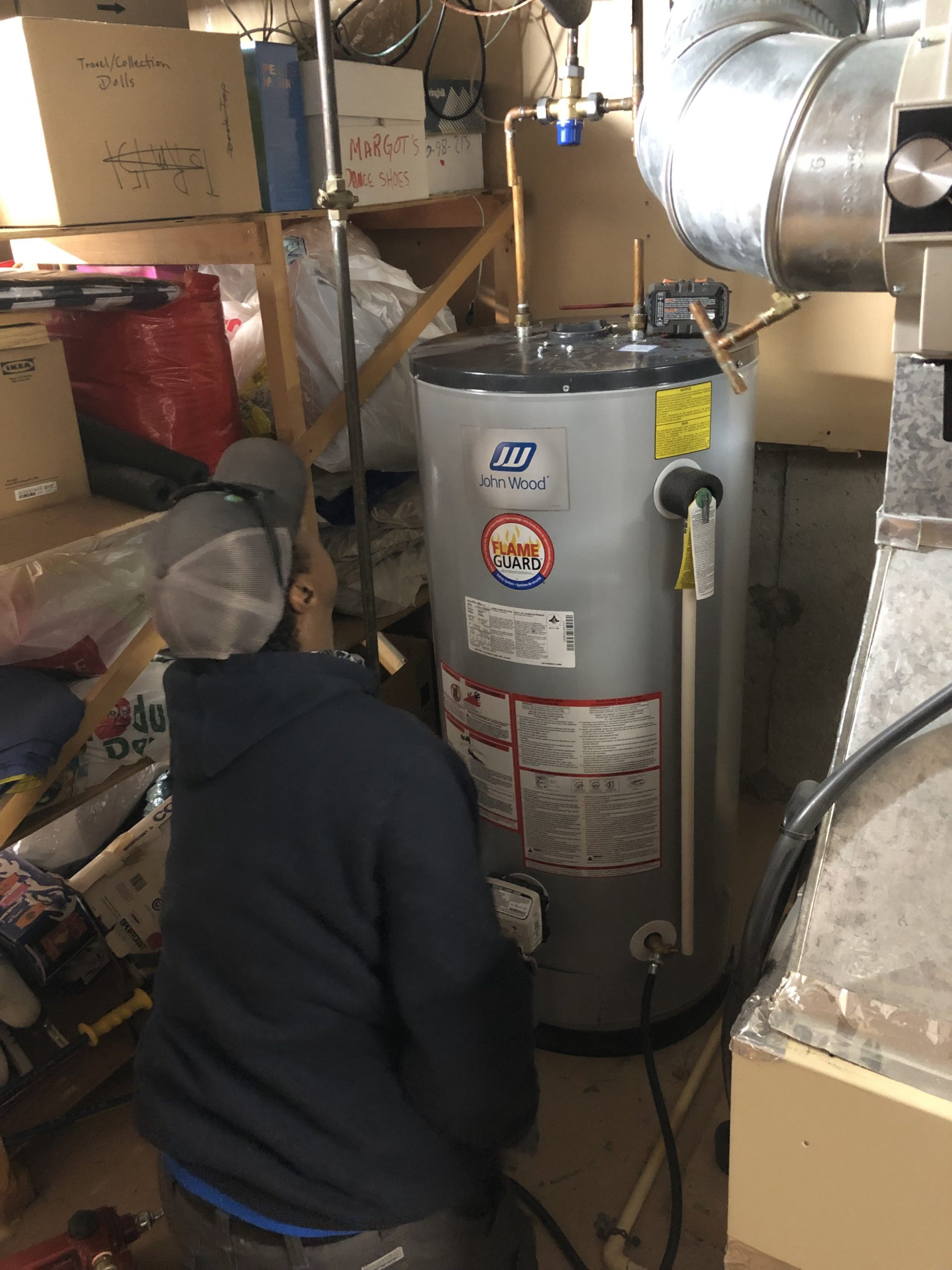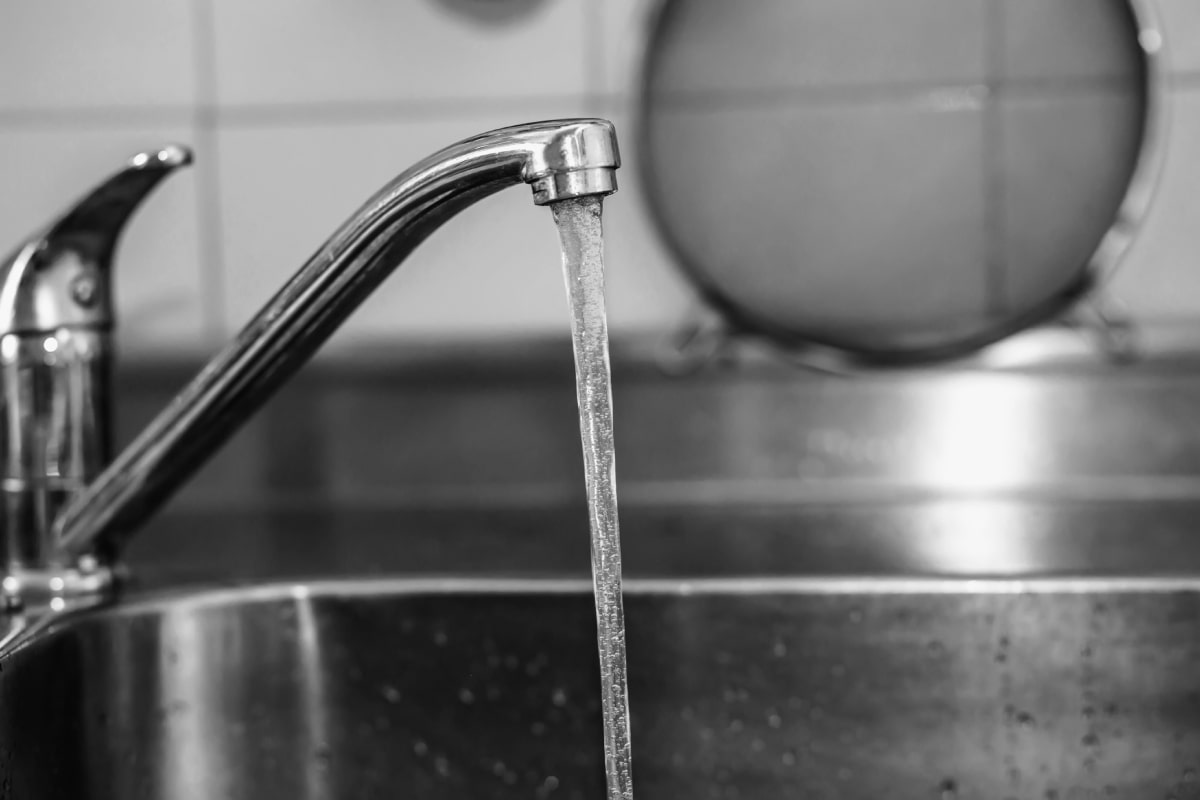Low hot water pressure in your home is frustrating, affecting everything from your morning shower to washing the dishes. It’s also more than just an inconvenience; it can be a sign of lurking issues in your hot water system that can lead to serious problems if left unchecked.
Water heaters are essential to our well-being and daily living. We rely on them throughout the day without even noticing (until our hot water is gone). In fact, water heating is the second-largest use of energy in Canadian homes.
Our hot water energy use is so high that many Canadians have adopted energy-efficient tankless water heaters. When hot water pressure disappears, we’re quick to notice.
In this post, we’ll discuss common causes of low hot water pressure, what it can mean, and the potential water heater repair solutions:
- Common Causes of Low Hot Water Pressure
- Low Hot Water Pressure FAQs
- Solutions to Improve Hot Water Pressure
Common Causes of Low Hot Water Pressure
Understanding why low hot water pressure can happen is the first step in resolving your problem. Here are some common things to look for:
1. Mineral Buildup in Pipes
Over time, mineral deposits can build up in your pipes, especially if you have hard water (a higher concentration of dissolved calcium and magnesium). Hard water deposits minerals inside your pipe walls. Eventually, this buildup actually makes the interior of your pipes smaller and restricts how much water can flow.
Here are common signs you have mineral buildup:
- Water is scolding hot
- Hot water is only lukewarm
- Tank is leaking at the bottom
- Heater is making loud noises
2. Issues with the Hot Water Heater
A malfunctioning water heater or hot water tank can absolutely cause low hot water pressure. Calcium and lime buildup inside the tank, a leak, faulty heating elements, or some other issue can contribute to low hot water pressure in your home.
3. Problems with the Pressure Regulator
The pressure regulator is a device that controls the water pressure throughout your home, making sure you get the same pressure at every tap. If it’s set too low or not working correctly, it will cause low water pressure for both hot and cold water, not just hot water.
4. Pipe Corrosion

Older homes often have galvanized steel pipes, which corrode over time. Corrosion can cause both leaks and a buildup of rust and other material sediment inside your pipes.
5. Leaks in the Plumbing System
Leaks can happen in pipes throughout your hot water and plumbing systems. Even small leaks can have a big effect on your hot water pressure.
6. A Partially Closed Valve
The hot water shutoff valve is there to let you cut off your hot water supply lines if you need to repair or replace something in your plumbing. If your hot water valve isn’t fully open, it will reduce the hot water pressure throughout your house.
Low Hot Water Pressure FAQs
What causes low hot water pressure in the shower?
Low water pressure in your shower can be caused by a clogged showerhead from mineral buildup. If you’re getting low water pressure for both hot and cold water only in the shower, this is likely the issue.
If you’re only getting low hot water pressure in the shower and not cold water, the problem is probably something else. Or, if you’re getting low hot water pressure throughout your home, the issue is likely further up your hot water system.
Can a faulty water heater affect water pressure?
Yes, a faulty water heater can affect your water pressure. Sediment buildup, malfunctioning heating elements, or other problems with the water heater can reduce the water flow and pressure of hot water.
How often should I flush my hot water tank to prevent low pressure?
It’s recommended to flush your hot water heater at least once a year to clear out sediment.
How to check for mineral buildup?
Mineral deposits usually build up in faucet aerators and showerheads first. To check these for mineral buildup, unscrew the aerator from your faucet or the showerhead from its pipe. See if there’s white, chalky deposits. If you see buildup, soak those parts in vinegar for a few hours to dissolve the minerals and then scrub with a brush.
The water heater is another spot you can check for mineral buildup, especially the heating elements and inside the tank. Listen for popping or rumbling sounds when the water heater is in use. That often means you have sediment buildup inside the tank. Next, turn off the water heater and attach a garden hose to the drain valve. Open the valve to drain the hot water tank and check the water that comes out. If you see sediment or discoloured water, that’s a sign of mineral buildup.
You can also remove the anode rod from the top of the water heater and check for signs of corrosion and buildup. Check YouTube for videos on how to do this.
Solutions to Improve Hot Water Pressure
Once you’ve narrowed it down and figured out the cause of your low hot water pressure, there are a few remedies you can do yourself, while some of these will require the help of a professional.
1. Cleaning or Replacing Clogged Pipes
If mineral buildup is your issue, you need to either clean out or replace pipes in question. Unless you know what you’re doing, you’ll need to call a plumber to do a thorough cleaning or a pipe replacement if necessary.
2. Flushing the Hot Water Tank
Flushing your hot water heater removes sediment buildup, improving water flow and pressure. It’s a good idea to do this once a year and it’s relatively simple to do. There are a lot of YouTube guides available on how. It can really extend the life of your water heater.
3. Adjusting or Replacing Pressure Regulators
If your water pressure regulator isn’t working or is set too low, adjusting or replacing it can be the fix. Unless you know what you’re doing, get a new pressure regulator installed by a professional.
4. Repairing or Replacing Corroded Pipes
Corroded pipes usually need to be replaced. Old-style galvanized steel pipes can be replaced with modern ones made of copper or polyethylene (also called PEX), which are more resistant to corrosion.
5. Fixing Leaks in the Plumbing System
If you suspect you have leaks in your plumbing system, call a plumber. They can locate leaks using specialized equipment and get them fixed up professionally.
6. Make Sure Your Hot Water Valve is Open
If your hot water valve isn’t open all the way, make sure you open it before trying any other fixes.
Why Choose Hot Water Ottawa?
Low hot water pressure can be a real pain for you and your family.
Our team of reliable, licensed experts is here when you need them in Ottawa. We specialize in hot water heater repairs, installations, maintenance, and rentals.
Solving your hot water problems is all we do!
Every one of our friendly techs has extensive experience diagnosing and resolving water heater issues. We provide prompt, reliable service to make sure you and your family have hot water as soon as possible.
AND, we make customer service a priority. Your happiness with our work is 100% guaranteed.
If you need help with your low hot water pressure, give us a call or book an online consultation, for free.

